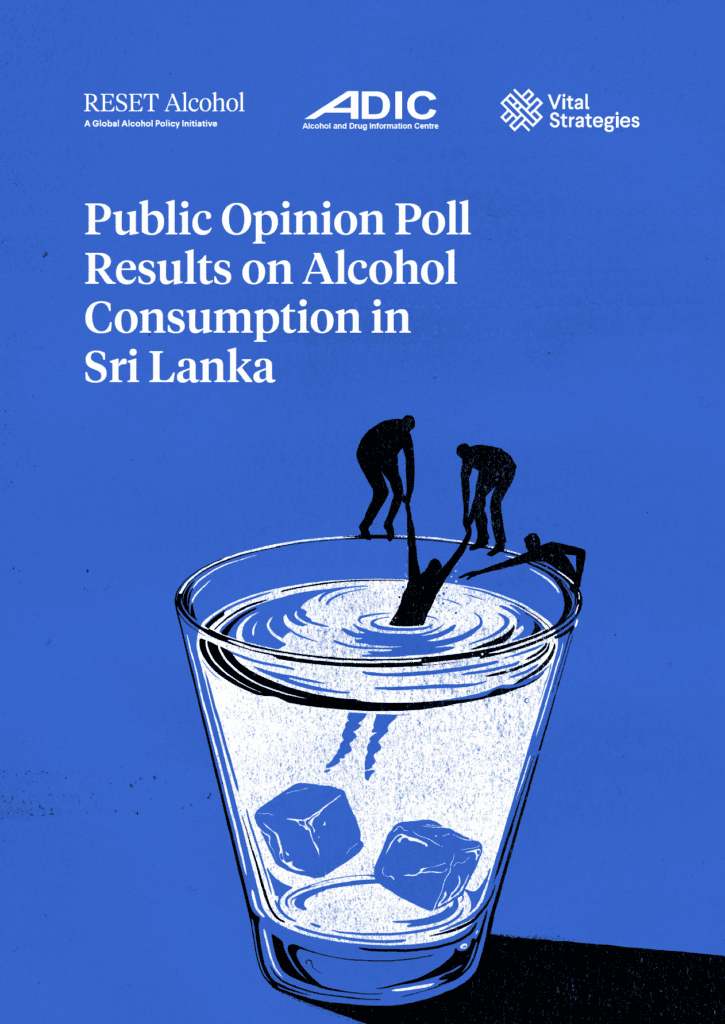2023 has been a year filled with alcohol policy improvements for Sri Lanka. For example, the government took steps to increase excise duties on alcohol twice this year. The first step was raising the cigarette and alcohol tax by 20% in January. The government further improved state fiscal policy through alcohol and cigarette taxation in July. These increases are expected to provide for the budget deficit that Sri Lanka is experiencing.
Another example is that the government is now also actively banning companies from producing and distributing their products in the country if they fail to pay their fair share of taxes .
Cheating alcohol companies lose licenses
Despite the increase in alcohol taxes, the Sri Lankan Ministry of Finance has taken note of several companies that are not fulfilling their obligations to the people. Tax revenues help the government to strengthen the social environments and programs that safeguard the well-being of the Sri Lankan people. Taxing health harmful products like alcohol also helps prevent their harms while helping generate funds for social security. That is why the Excise Department has suspended the licenses of five alcohol manufacturing companies. The suspended companies are:
- W. M. Mendis & Co. Ltd.,
- Synergy Distilleries (Pvt.) Ltd.,
- Finnland Distilleries Corporation (Pvt.) Ltd.,
- Wayamba Distilleries, and
- Randenigala Distilliries Lanka (Pvt.) Ltd.
According to the State Excise Department, the licenses of these companies expired on October 31st. The date marked the end of the grace period extended to them to settle their tax dues. The Excise Department refrained from renewing the licenses due to the long-standing arrears. The suspension of licenses effectively prohibits these companies from producing and distributing their harmful products within the country.
However, the Commissioner General of the Excise Department does not believe that the ban will impact alcohol production significantly.
There are still around 20 alcohol manufacturing companies in Sri Lanka. One company has obtained a 40-day stay order against the deadline to settle their tax obligations.
Two companies among the 20 also account for 70% of the alcohol production in the country. These two are not among the companies suspended.
Majority of people concerned about alcohol burden and supports alcohol tax increase
Timely research conducted by the Alcohol and Drug Information Center (ADIC) and Vital Strategies under the RESET Alcohol Initiative shows the truth about people’s attitudes, knowledge, and support for alcohol policy.
The survey found that there is a clear disconnect between the opinions of the public and their representatives.
There is a clear need and vast support for alcohol policy action in Sri Lanka, including raising taxes and protecting people from alcohol advertising better.
An overwhelming majority of Sri Lankans, 97%, believe that alcohol is a problem in the country.
It is clear therefore that Sri Lankan society is welcoming of alcohol policy changes that prevent alcohol harm in the country. Establishing the public perception of the people’s attitudes about policy changes is vital in justifying and implementing these changes. Seeing these perceptions being carried forward into policy change is heartening for Sri Lankans themselves.
Making alcohol policy a national priority would benefit people, families, and communities across Sri Lanka. And it would benefit the economy and government budgets.
Raising taxes helps prevent deaths, improves government funding, and has not had unintended consequences
Scientific analysis published earlier this year in Sri Lanka established the case for alcohol taxation and refuted alcohol industry myths.
- Alcohol has been identified as the cause of more than 4,200 deaths in Sri Lanka.
- The state has to pay up to three times more than it earns by providing healthcare caused directly and indirectly due to alcohol harm.
- Despite the ongoing economic crisis, less than 10% of alcohol consumers in the country consume illicit alcohol (kasippu), which coincides with figures before the economic crisis.
This means that price increases in Sri Lanka do not result in alcohol consumers switching to illicit alcohol.
The claim that this occurs is frequently pushed by alcohol industry lobbyists, front groups, and politicians doing the dirty work for alcohol companies to block the much-needed and life-saving alcohol tax increases in Sri Lanka.
Alcohol taxation as a catalyst for development
Low- and middle-income countries need policy solutions that use fewer resources while producing the largest effect – targeting the biggest obstacles to development. Alcohol policy in general and alcohol taxation in particular, as the single most cost-effective alcohol policy solution, help reduce population-level alcohol use and harm.
A long history of peer-reviewed research also shows that they are cost-effective interventions for promoting development.
The Copenhagen Consensus think tank has been working for years together with several Nobel laureates and more than a hundred leading economists to identify where each policy dollar can do the most good. Alcohol policy in general and alcohol taxation in particular are among the top options for governments.
The alcohol policy improvements and their enforcement on the state level therefore will help Sri Lanka both limit social costs as well as spark further economic growth for all.
Sources
Daily Mirror – Licenses of five liquor companies suspended
Daily News – Excise Department suspends five liquor company licences

